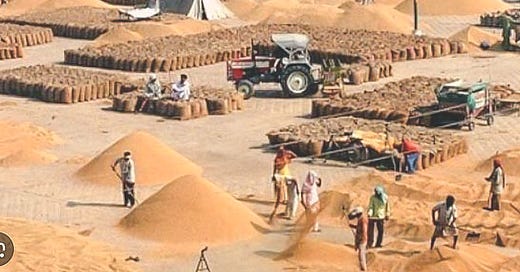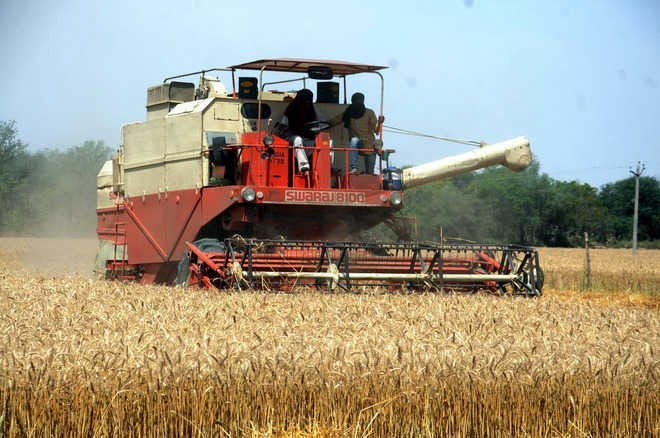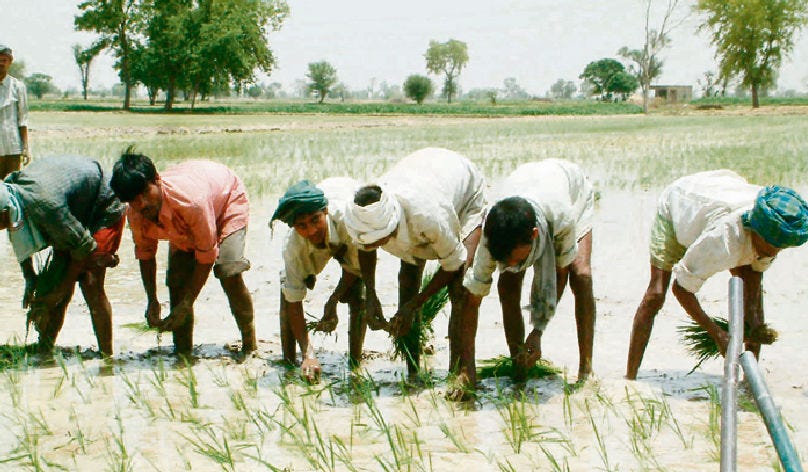Export Bans on India's Agricultural Commodities: Humongous Losses to the Farmers
An OECD Report highlights that farmers globally may have lost $6.19 billion due to these restrictions.
Main Agricultural Commodities Facing Export Bans
India has maintained export ban and restrictions on key agricultural commodities, including non-basmati white rice, wheat, and sugar, for the past few harvests, particularly in the wake of the Russia-Ukraine war. These measures are purportedly intended to address rising domestic prices and ensure food security. According to The Tribune, the OECD Report highlights that farmers globally may have lost $6.19 billion due to these restrictions. However, the article by agricultural expert Devinder Sharma does not specify the portion of these notional losses borne by Indian farmers.
Let's delve deeper into this subject from an Indian perspective.
Impact on Exports
India's agricultural exports are projected to remain flat in FY24 due to the export curbs on wheat, non-basmati rice, and sugar. This could potentially result in a decline of $4.5-5 billion in outbound shipments. The rice export ban alone is expected to affect about 25% of India's total rice shipments. In 2022, India exported 10.3 million tonnes of non-basmati white rice. The ban has forced rice-importing countries, especially in Africa and Asia, to seek alternative suppliers like Thailand, Vietnam, Pakistan, and the US, likely at higher prices.
Domestic vs International Prices
The export bans were imposed to control rising domestic prices in India. However, the restrictions have had limited success. Despite the wheat export ban, domestic wheat prices in India reached an 8-month high in September 2023. After the non-basmati rice export ban in July 2023, retail rice prices in India continued to surge, rising 27.43% month-on-month in October 2023.
In contrast, the export curbs have triggered a spike in global prices. International rice prices rose to multi-year highs following India's ban. Thai rice prices increased by 14% and Vietnamese rice prices by 22% between July and October 2023. Global wheat and sugar prices have also risen in recent months, while Indian consumers face increased costs for these commodities.
Official Reasons for the Bans
The Indian Government imposed the export restrictions primarily to:
Ensure domestic food security and adequate availability in the local market
Control rising food inflation and stabilise domestic prices ahead of the 2024 general elections
Address concerns over potentially lower production due to uneven monsoons and crop damage
Impact on Indian Farmers
The export bans have adversely affected Indian farmers in multiple ways. The rice export ban, announced during the planting season, has sent the wrong signal to farmers, potentially reducing rice planting by 5% as growers may shift to other crops. While this shift may be justified by economists and agronomists as useful and desirable, the losses incurred by the farmers cannot be brushed aside or swept under the carpet. Farmers are unable to benefit from higher international prices due to the export restrictions. Farm incomes are likely to be hit as the export bans limit farmers' ability to sell their produce at remunerative prices in the global market. Farmer groups like the Bharatiya Kisan Sangh have demanded that the government compensate farmers by procuring larger quantities of rice at higher prices to offset their losses from the export ban.
PM’s “Largesse” to the Farmers?
As his first action upon assuming office for his third term, Prime Minister Narendra Modi authorised the release of the 17th installment of the PM-Kisan Samman Nidhi fund on June 10, 2024. This installment, amounting to nearly ₹20,000 crore, will benefit around 9.3 crore farmers. Under the PM-Kisan scheme, eligible farmer families receive ₹6,000 per annum in three equal installments of ₹2,000 each, transferred directly to their bank accounts every four months.
The 17th installment, originally due in April/May 2024, was delayed due to the enforcement of the Model Code of Conduct during the elections. PM Modi, however, emphasised that this decision highlights the government's commitment to farmers' welfare (Kisan Kalyan). Interestingly, while the export bans imposed by the Government continue to deprive Indian farmers of fair prices for their produce, Prime Minister Modi authorised the release of the 17th installment of PM-Kisan funds, amounting to around ₹20,000 crore and benefiting 9.3 crore farmers. However, this installment, despite the hype, translates to a mere ₹500 per family per month.
Balancing Domestic Needs and Global Impact
While the export curbs on wheat, non-basmati rice, and sugar were aimed at ensuring domestic food security and controlling inflation, they have disrupted global supply chains, pushed up international prices, and negatively impacted Indian farmers' incomes. In light of some anti-farmer narratives floating around in the media, including social media, that portray the Indian farmer—especially those in Punjab and Haryana—as pampered and overpaid for their agricultural produce, the ban on exports does not make sense. If these bans raise the prices of food grains during the procurement season, the government will not be burdened with holding huge amounts of stocks as part of its buffer stocks.
Government's Obligation and Media Narrative
It is the statutory liability of the Government of India to fulfil its obligations under the Food Security Act. The increased subsidy therein should not be amplified in the media as “food subsidy,” which the lay reader may misconstrue as a subvention to the farmer. This subsidy is meant to finance the 80 crore persons whom PM Modi proudly declares to be getting free food grains. While the government faces the challenge of balancing domestic needs with the interests of farmers and India's role as a major agricultural exporter, the notional loss suffered by the farmers should form a part of the media discussion. This would help counter the current narrative that skews the picture against the farming community, portraying them as an aggressive and well-organised lobby that is demanding unfair prices.
If you believe this article would interest someone you know, please feel free to share it anonymously (for us), using any platform that you prefer.







